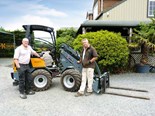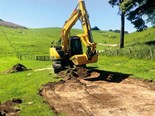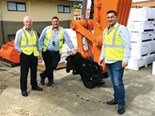Special feature: Case wheel loaders
Case wheel loaders are providing tangible results for Living Earth’s composting facility in Christchurch. Deals on Wheels finds out more.
Daniel O’Carroll manages the Waste Management-owned Living Earth composting facility on the outskirts of Christchurch. His dedicated team oversees the production of some 60,000 tonnes per annum of finished product—converting organic waste that would have traditionally been deposited in the region’s landfills into a saleable and environmentally-friendly premium compost.
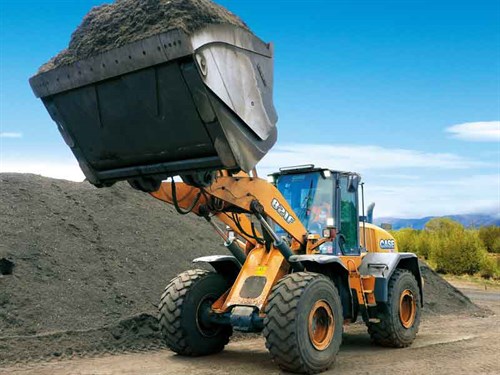
Most homeowners, especially those with gardens, are familiar with composting. Organic waste is placed in a pile or container, which subsequently breaks down to provide a product to reuse in the garden or to condition poor soil. It’s nature at its finest.
While most people know how compost is made, the key is to know how to consistently turn out a top-quality end product efficiently and, importantly, economically.
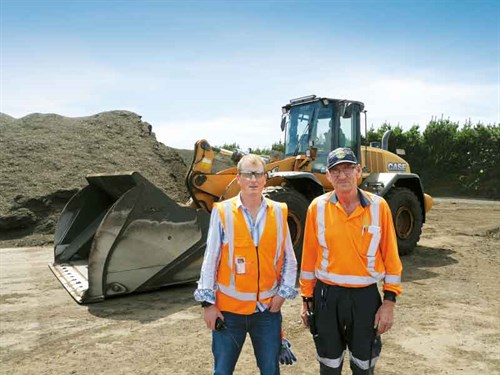
This is where Living Earth comes into their own with an extensive array of modern machinery and proven processes, all designed to output product as quickly as possible while strictly maintaining a high level of quality control and environmental care.
Custom solutions
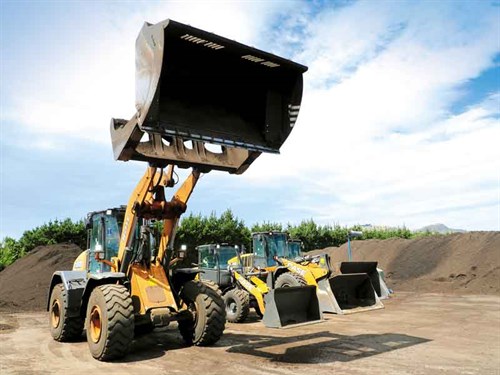
A step towards reducing impact on the environment is to minimise the number of movements required by machinery on-site. This also has the flow-on effect of lessening fuel burn and consequently saving money.
Another option is to purchase machinery that consumes less fuel while handling large payloads. This is the point where mathematics and engineering closely align and is where Daniel saw an opportunity for improvement by integrating Case wheel loaders into the operation.
"Just after I started here three-and-a-half years ago, I had to replace the existing loaders we had," he says. Daniel says he was trying to look for the best loader for the site as far as loader size/bucket size for the operation.
"I was aiming for the smallest loader possible with the biggest payload," he says. "I’m a mechanical engineer, so what I liked with Case was its configuration. The other brand we had previously used on-site had the cooling unit at the back whereas the Case had the engine at the back.
"I could easily see that if I’ve got that counterbalance (at the back), technically, I should be able to hold more at the front. Another brand we were looking at required a large counterbalance to be fitted to get anywhere close to what we wanted to do. Unfortunately, the sales person from that company didn’t quite get what I wanted, which was light with the ability to carry a large payload."
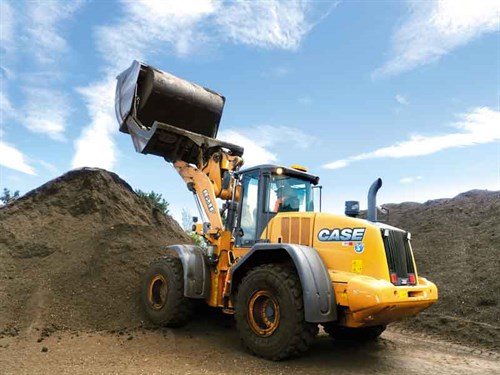
It was calculated that the most efficient size-weight ratio was a six-metre bucket, and Daniel says Case New Zealand distributor Advancequip was helpful in engineering the required solution, which saw an order placed for the first machine.
"There are not many operations like this in Australasia, let alone New Zealand, where we’re running a wheel loader of this size (17,664kg) with a six cubic metre bucket on it," Daniel says.
The large-capacity six cubic metre high-lift bucket was custom-made to Daniel’s specifications and the finished bucket eliminated residual material from clogging to the inside of the bucket.
"We were really happy with the design. There are no points where we have material hanging on, and it reduces the need for operators to clean out the buckets manually. Even with the big buckets on, the machines aren’t labouring at all," Daniel says.
The Case fleet
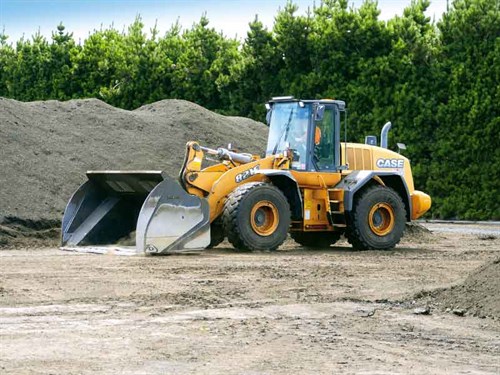
Since the introduction of the first Case 921F (19,857kg operating weight) wheel loader just over two years ago, Living Earth has gone onto purchasing two slightly smaller 821Fs (17,664kg) and a smaller 321 model (5750kg), which is used mainly on tidy up duties around the yard, including sweeping.
"We now have something like 15 Case machines across the Waste Management group," Daniel says. The efficiency of Case machinery fitted with high-capacity buckets has been a big factor in significantly reducing the number of movements to process a batch of compost from 128 down to only 75, says Daniel.
"We are able to safely carry more compost by quite some margin (compared to the previous brand) with the Case loaders and are using less diesel in doing so," he says. "Our diesel burn is down and our capacity per bucket is up."
Take-up by the operators has also been positive, with Living Earth leading-hand John Edmondson saying visibility has increased when compared to models of the previous brand he operated. "Additional visibility is important, especially when we are operating buckets as large as these," John says.
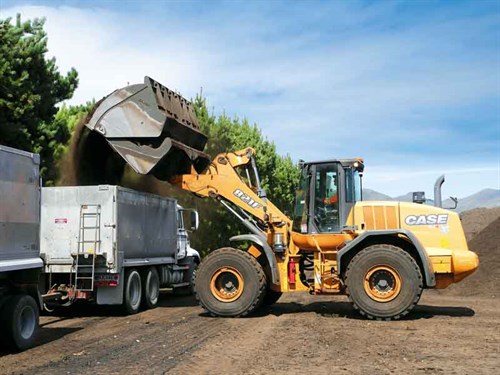
All of the Case machines are maintained with a service contract, and Daniel says this helps ensure basic servicing is carried out according to a set schedule.
"The service contract allows us to keep a smooth costing throughout the year so we don’t get unexpected blips on our financials. From a mechanical point of view, I’ve had no complaints."
With the machines clocking up to 2000 hours per annum each and the first Case loader two years into operations, Daniel and his staff are keeping a close eye on equipment performance and longevity.
"We run long hours here and our challenge is that compost in itself can be corrosive, so we’ve got pre-filters installed on all the equipment and control measures on-site to minimise dust.
"It’s about getting the team out there the right equipment to do the job, and to do it safely. That is important," he says.
Keep up to date in the industry by signing up to Deals on Wheels' free newsletter or liking us on Facebook.




.jpg)





